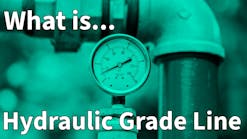Danish pump giant Grundfos has partnered with Israeli company TaKaDu to tap into the growing smart water management market.
The two companies are running a joint pilot project at Danish water utility Frederikshavn Forsyning where high-tech solutions are employed and tested in a “live” environment.
It is hoped that the partnership will be able to help utilities to fulfil new operational targets for saving energy and water.
The partnership will leverage TaKaDu’s experience of using cloud-based advanced software to detect anomalies in a utility’s water supply, together with Grundfos’s work on addressing demand driven distribution.
Kenth Hvid Nielsen, group vice president, global water utility, Grundfos said that the partnership “accelerates our efforts in the digitalisation journey”.
Amir Peleg, founder and CEO of TaKaDu, said: “We are very excited to partner with Grundfos in the global water market, and expand our comprehensive event management solution to new dimensions of data, related to energy and network operations.
“Data analytics yields a wide spectrum of benefits, and we are confident that this partnership will boost efficiency of both water and energy.”
Qatar begins transition from thermal to RO desal
The Ras Abu Fontas (RAF) A3 desalination plant expansion has been opened in Qatar and marks the start of the country’s journey to membrane-based potable water production.
Costing QR1.75 billion (US$480.6m), the expansion will enable the production of an additional 164,000 m3/day.
RAF A3 represents Qatar’s first desalination project using seawater reverse osmosis membranes and was awarded to Japanese firm Mitsubishi Corporation in 2015. The project was developed under an independent water project model with water and power producer Qatar Electricity and Water Company (QEWC) for a 25-year period. Utility Kahramaa will then distribute the water.
Historically, the country’s potable water has been produced via thermal processes, using heat from co-located power plants.
QEWC has tried RO technology but only a small scale as part of a trial.
Speaking at the opening of RAS A3, minister of energy and industry and chairman of QEWC H.E. Dr Mohammed bin Saleh Al Sada reportedly said the project represents a “leap in the quality of water production using reverse osmosis technology, which is distinguished by its low cost and complete independence from the electricity generation process”.
Retrofit attack plan pays off for Energy Recovery
Shuaibah SWRO helps Doosan re-enter Saudi Arabia
Korean firm Doosan Heavy Industries & Construction has secured a US$422 million contract to build a seawater reverse osmosis (RO) desalination plant in Saudi Arabia.
The engineering, procurement and construction project for the Saline Water Conversion Corporation will see the SWRO facility built in Shuaibah, 110 km south of Jeddah, on the coast of Red Sea.
It has been seven years since Doosan has secured new business in Saudi Arabia’s desalination market, having won the Yanbu phase 3 desalination deal in 2012, and the Ras Al-Khair project back in 2010.
Self-cleaning membrane development accelerates in Wales
A self-cleaning water treatment membrane made of nanofibers could change the economics of desalination plant operation and maintenance, according to researchers at Swansea University’s College of Engineering. A latest development has seen further research involving the electrolysis concept at the spacer component of the membrane module, where the conductive spacers work as an electrode (cathode) in electrochemical set-up. The membrane was subjected to fouling and then exposed to periodic electrolysis, wherein in-situ cleaning of membrane surface by hydrogen bubbles generation at the spacer is applied.
US firm Energy Recovery has secured $3 million of projects to supply its pressure exchanger technology to unnamed locations in Europe.
The company will supply its PX-Q300 and PX-Q260 Pressure Exchanger devices for the plants, replacing existing turbine technology.
A total of up to 133,000 m3/day will be produced using the technology.
Energy Recovery estimates the PX devices will reduce power consumption for all projects by 2.5 MW, saving over 21.4 GWh of energy per year. The orders are expected to ship in the second half of 2017.
More Water & WasteWater International Current Issue Articles
More Water & WasteWater International Archives Issue Articles

